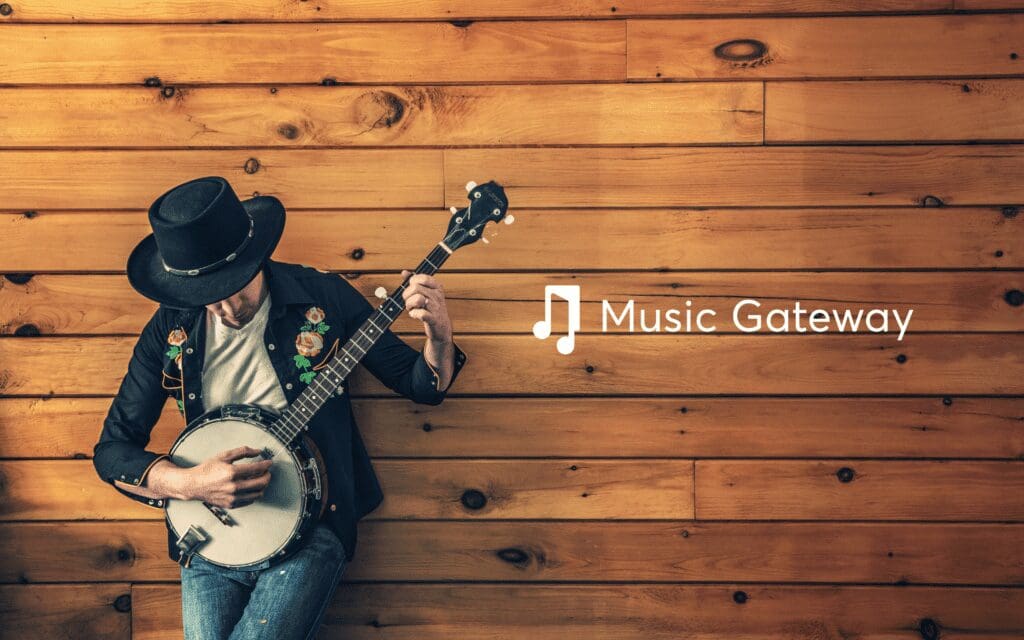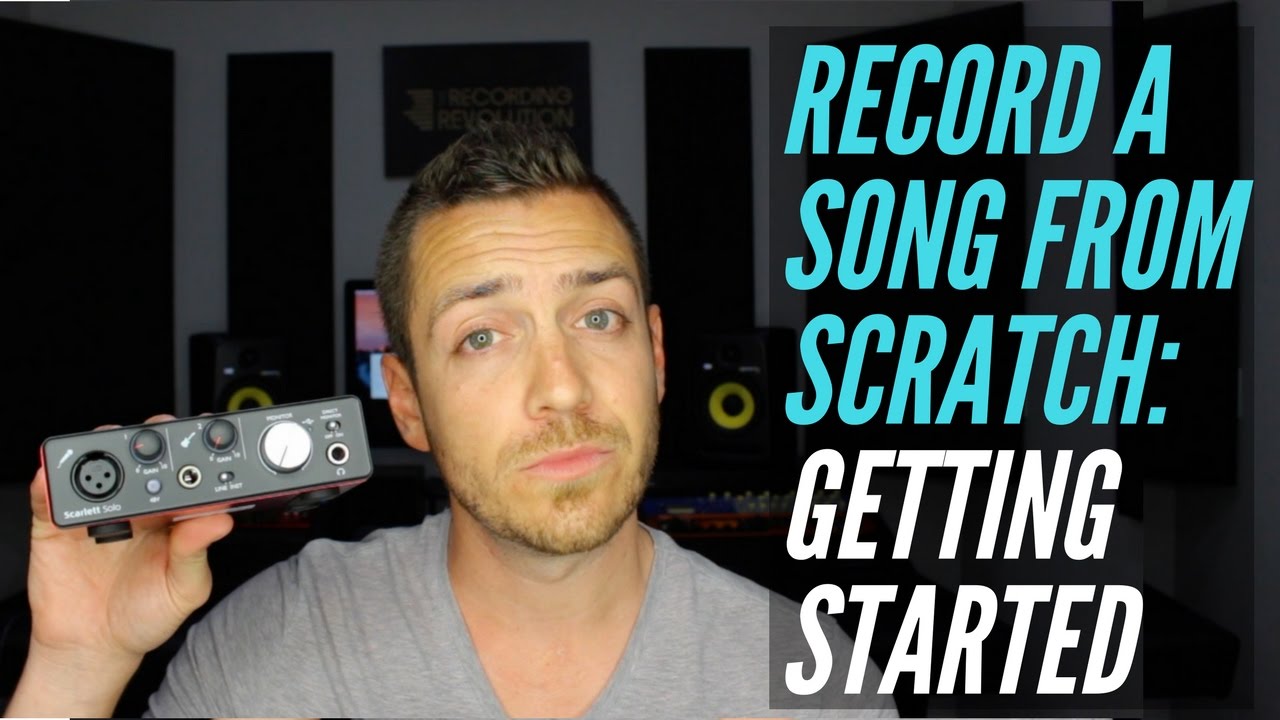
Take a look at the music charts in any given week, and you’ll probably find a good range of music styles that have made their way into the ears of the nation. But while many songs on the chart are likely to be quite different from one another, the majority will have one significant similarity – singing. In this article, we’ll closely examine the history, techniques, and styles of singing and tell you everything you need to know about how to be a singer.
Singing is a vital part of modern music, helping artists to spread their message, add feelings to their tracks, and form a deeper connection with their listeners. But if you dream of becoming a professional singer, you’ll need to hone your vocal skills, learn how to read music and practice performing in front of an audience. And to give you the best chance of ‘making it’, you’ll also need to create a portfolio of your work, find a manager, and network with other industry professionals. Landing a gig as a singer can be challenging, and you’ll need to prepare to face rejection and criticism. But, with hard work and dedication to your craft, you’ll give yourself the best shot at achieving your goal and forging a career as a professional singer.
What Is Singing?
It can take many forms, but in the purest sense, singing is the act of using the human voice to produce musical tones. Various parts of the human body must combine to create noises. Depending on the singing style, the lungs, larynx, chest and head cavities, tongue, lips, and mouth palate can all be used during singing.
How Long Have Humans Been Singing?

Today, music is firmly ingrained in our daily lives. But evidence suggests that this is far from a new trend. Archaeologists have found musical instruments that date back tens of thousands of years. They’ve even found what is believed to be a flute made by Neanderthals over 60,000 years ago.
Interestingly, studies of our ancestors have shown that even 500,000 years ago, hominids had similarly shaped throats as modern humans. This ancient anatomy and the musical nature of our ancestors (as implied by the discovery of primaeval instruments) means that singing could very well predate our species.
How Is Singing Different From Speaking?
While we use the same biological systems to speak and sing, the two functions have several differences in practice. Singing usually is much more dynamic, both in volume and pitch. With its increased volume, singing also requires the vocalist to use more air than talking. Additionally, a singer must use greater control over their voice than is needed when talking.
What Are the Different Types of Singing?
As music has evolved and expanded over the years, different genres have established themselves, and many of these genres utilise vastly different singing styles. Which style is right for you depends on several factors, including your vocal abilities, musical preferences, and goals. Here are some of the most popular current singing styles:
Pop Singing
As the currently dominant music genre, pop singing is undoubtedly the most popular singing style today. Pop vocals generally rely on a strong and melodic voice and focus on singing in tune. Pop singers also use various vocal techniques, including vibrato, runs, belting, and key changes.
Rock Singing
Evolving from rock and roll, one of the most popular genres of the 1950s, rock music has kept the melody and hooks of the early originators but added stronger elements to give the genre more power and edge. Rock vocalists usually need a powerful voice focused on singing with emotion and energy to compete with the distorted tones of electric guitar amps and loud, driving drum beats. Although rock vocals can vary, singers will need to make the most of their diaphragms and frequently use techniques such as breathy head voices, mixed head and chest vocals, vocal riffs, and repetition.
Metal Singing
Taking things up a notch from rock vocalists is the metal singers. As a genre, metal arguably has more extremes and subgenres than any other style, meaning that there is a vast range of choices for metal singers. Whether belting out soulful pop melodies, raspy singing, death metal growls, black metal shrieks, or even operatic-style vocals, there’s likely to be a style of metal singing that suits any vocalist. However, many of the more aggressive vocal styles in metal use false vocal cords, which can help singers achieve a suitable raspy tone without damaging their throats.
Jazz Singing
As a generally more subdued and mellow form of music, jazz typically features smooth and soulful vocals, with techniques such as scatting and melisma. But although the genre might be less physically demanding than rock, for instance, the frequently improvisational essence of jazz presents a different set of challenges for any would-be singer. To keep up with musicians changing music phrases on the fly, you’ll need good music hearing skills, excellent pitch, and the ability to improvise vocal phrases quickly.
Classical Singing
With roots in medieval Europe, classical singing is one of the oldest forms of singing still used today and is sub-categorised into three different styles: art songs, lieder, and operas. This style normally uses clear and pure vocals, often structured in arpeggios and scales, so vocalists must have great technique and control. Many compositions are written in different European languages, including English, French, German, and Italian, so good language skills may also be necessary. Classical singers can choose from an extensive range of vocal techniques, including vibrato, trills, and legato.
R&B Singing
With roots in several classic genres, including soul, funk, blues, jazz, and gospel, R&B singing is characterised by soulful and smooth vocals, focusing on singing with emotion and passion. R&B singers often use vocal techniques such as belting, runs, riffs, and melisma. It’s also essential for R&B singers to have a strong sense of rhythm, enabling them to fit their vocal lines in the song’s groove perfectly.
Country Singing
Originating in the southern states of the U.S., country music is a style of folk music that often features bluesy lyrics telling tales of hard knocks and working-class life. Vocally, it usually centres around nasal and sometimes drawled singing, using techniques like yodelling and twang.
Country music also boasts several distinct subgenres, each with its own vocal flavours. Outlaw Country was popularised by some of the most famous country artists, such as Johnny Cash, Willie Nelson, and Waylon Jennings, and incorporates classic country with newer genres like Southern rock. On the other hand, gothic country has its roots in jazz, gospel, and Americana and sees vocalists perform lyrics with darker themes.
Folk Singing
Whether looking at traditional styles or modern revivals, folk music is an incredibly varied and rich genre that is connected by the idea of being influenced by ethnicity and heritage rather than a common musical style. Indeed, regional folk styles can even vary within a country. Musically, folk often features traditional and culturally relevant instruments, which is also true of folk singing. Vocal styles used by folk singers are often unique to a specific area before gaining popularity on a larger scale, such as yodelling, throat singing, droning, and parallel singing.
Musical Theatre Singing
As one of the few forms of singing that require acting skills alongside strong vocals, musical theatre singing is certainly challenging. It requires a strong, powerful, emotional, and characterful voice that can convey a scene through song and make the audience laugh, cry, or have their hairs stand on the back of their neck. Mixing many of the elements of classical and pop singing, Musical theatre singers need to have solid belts and mixed voices, along with using techniques such as riffs, runs, and melisma.
Understand the Basics of Singing
Singing is a form of vocal expression that involves using the voice to create melodies, rhythms, and harmonies. To be able to sing, you must first understand and control the basics of vocal technique, which include breath control, posture, and resonance.
Breath control is the foundation of singing and is the first thing you’ll need to master to improve your singing technique. It involves controlling both the speed and depth of your breathing to create a steady and controlled flow of air and breathing from the ‘right’ places. Proper posture is also vital to maximise your breath control. Most singers need to stand or sit up straight with relaxed shoulders and their chin tucked in to improve voice projection and create a better sound.
Alongside breath control, resonance is an essential part of understanding the singing process. Just as with instruments like guitars, violins, and pianos, the human body has chambers that resonate with the tones you create with your voice. To maximise resonance and learn how to create different tones and textures with your singing, you’ll need to understand the functions and features of the cavities in your head, chest, mouth, and nose and how to use them.

Finally, you’ll also need to learn proper vocal techniques. This can include learning how to use your mouth, tongue, and jaw to shape and control the sound of your voice, along with learning how to use pitch, volume, and vibrato to create a unique sound.
By mastering these basics of singing, you will soon be able to create beautiful, rich, and expressive performances in a range of styles and genres.
What Makes a Good Singing Voice?
It’s often easy to tell a good singing voice from a bad one, usually just by listening and instantly recognising whether the voice is pleasant. However, identifying why a voice is good or bad is not always so easy. This can come down to a combination of various physical and mental reasons:
- Voice control
- Tone
- Phrasing
- Enunciation
- Singing in a style that suits your voice and abilities
- Pitch
By finding a vocal style that works for you and dedicating yourself to practice, you can develop all the tools you need to hone your singing skills.
Can Anyone Sing?

Not everyone can belt out strong pop vocals or perform the harshest metal screams. Similarly, someone with a tenor singing voice will not have a distinguished career as a bass vocalist. But, while certain limitations mean not everyone can sing every vocal style out there, anyone, barring those with a physical vocal restriction, can learn the basics of singing well enough to perform simple songs. Combined with developing your skills in writing melodies, lyrics, and phrasing, this could be all you need to find work as a singer.
Am I Too Old To Be a Singer?
While it’s undoubtedly easier to start learning as early as possible, it’s never too late to start singing. Every popular music genre has several stories of artists who didn’t make it big until a little later in life, including Leonard Cohen, 2 Chainz, Willie Nelson, and Sia. With a bit of grit and determination, age should not be a barrier to achieving your singing goals.
How To Develop Your Singing Voice
Developing your singing voice is critical for any career in singing, and it primarily involves plenty of practice and dedication. It’s essential to warm up your voice before singing and practise vocal exercises to help strengthen your vocal range and control. It is also vital to learn proper posture and breathing techniques and listen to recordings of other singers to get an idea of what a good singing voice should sound like.
You’ll also need to take care of your vocal cords by avoiding smoking and drinking alcohol. Additionally, it could be beneficial to find a good vocal coach or teacher to help you learn proper singing techniques, which will both improve your performance and help avoid damage caused by improper technique.
Learn Music Theory
While you might want to get straight into learning the singing techniques used by your favourite vocalists, learning music theory for singing is a vital starting point for building your skills. It involves understanding the fundamentals of music, such as pitch, rhythm, harmony, and melody and can help singers better understand how to create a pleasing sound and sing in tune. It can also help to develop an understanding of song structure and how to create interesting vocal lines and phrases.
Plenty of resources are available online to help you learn music theory for singing, including online courses, tutorials, and videos. Additionally, many books and websites offer comprehensive lessons on the fundamentals of music theory. For more in-depth learning, some music schools offer classes and lessons in music theory specifically for singers.
Do Breathing Exercises

Proper control of your breathing is one of the most important things you can master to improve your performance and is an essential part of vocal training. Thankfully, there are several routines you can try to practise breathing exercises for singing. Diaphragmatic breathing is used to strengthen the diaphragm and develop control for singing. In contrast, breath control exercises are designed to help a singer maintain a steady flow of air while singing.
When combined with vocal warm-ups, which help singers prepare their vocal cords for performance, these exercises can help singers develop the proper breath control and support needed to produce a strong and powerful voice.
Learn To Read Music
After getting to grips with the basic physical requirements, learning to read music for singing is one of the best ways to improve your vocal performance and make the most of your talent. It will help you to understand the basics of music notation, such as note values, time signatures, and key signatures. Learning to read music will also help you to recognise scales and runs, which is valuable for improving your ability to find notes and control pitch.
Plenty of options are available if you want to learn to read music for singing, including private lessons with a vocal coach, group classes at a music school or conservatory, or online tutorials. Finding a teacher who can help you develop a strong foundation in music theory and vocal technique is vital if you want to become a more confident and expressive singer.
Take Vocal Lessons
Taking vocal lessons for singing is a great way to enhance your vocal technique and range further. Generally, classes will involve a vocal coach helping you identify and improve any areas of weakness in your singing and assisting you in developing your own style and sound.
You can expect to work on warm-ups, vocal exercises, and song performance during a voice lesson. Your vocal coach will provide feedback on your technique and advice on the best vocal techniques for each song. If your coach thinks it’s necessary, they can also help you practise breathing exercises, posture, and other methods to improve your singing.
Vocal lessons can be a great way to improve your singing and develop your own unique sound. With the guidance of a skilled vocal coach, you can expect to become a more confident and capable singer. So vocal coaching is definitely recommended for any aspiring singer.
Sing in Public
When trying to become a singer, one of the most important things you can do is practice performing in front of a real audience as much as possible. You can attend open mic nights, perform at local venues, or even organise your own shows. Not only will this help to boost your confidence, but you can also get a feel of what parts of your performance are strong and which parts need work based on the reactions of your audience. It could also help you network with other performers and music industry professionals and get your name out there to find further performance opportunities.
When performing, engage with the audience and give them an energetic and memorable experience. Aside from vocal talent, a professional stage presence and the ability to connect with your audience are perhaps the most important skills you can possess as a singer. Make sure to have a good selection of songs and practise them until you are confident and comfortable performing them.
Finally, when looking for gigs, be persistent! Reach out to venues and promoters and open as many doors as possible. Make sure to have a professional portfolio of your work available to show off your talent, and it can help to have a list of references on hand that can vouch for your skills.
Record Your Singing
Recording your singing can have several benefits. Firstly, it can help you to identify and improve areas of your singing technique that may need work. By listening back to recordings, you can identify areas where you may be straining your voice, for instance, or where you might need to work on pitch and intonation.
Recording your singing can also help you to track your progress over time. By listening to recordings of your singing from weeks, months or years ago, you can hear just how far you’ve come as a singer, which can help further boost your confidence.
Finally, recording your singing is a great way to start a portfolio of your work. This can be useful if you want to pursue a career in music, as you can use recordings of your singing to demonstrate your abilities to potential employers or to land the chance to perform in public.
Get Feedback
The easiest way to determine your current ability level is to get feedback on your singing. While it can be tough at first to hear potentially negative comments about your skills, this is the quickest way to find out exactly what you need to work on and will help you become a more well-rounded singer.
While building your confidence, it can be helpful to seek feedback from family and friends that you can trust to be honest (and gentle!). Later, when you start to think about getting your name out there, perhaps consider releasing recordings of your singing on social media sites, where you can get comments from the public, or submit your recordings to promoters.
It can be daunting to share your singing with the world for the first time, but there’s no better way to build confidence and receive valuable information about your strengths and weaknesses.
Look After Your Voice
While it’s essential to learn as much as possible about different vocal techniques and music theory to make you a better singer, your hard work could be for nothing without knowing how to look after your singing voice. You must develop good vocal habits to avoid damaging your voice, including:
- Avoid smoking
- Drink plenty of water
- Rest your voice
- Avoid using too many voice extremes – shouting or whispering
- Limit caffeine and alcohol consumption
- Avoid spicy foods
- Exercise regularly
- Avoid overusing your voice
- Don’t sing when you’re overly tired or ill
By following these steps, you’ll give yourself the best chance to preserve your vocal talents for many years to come.
How To Find Work as a Singer

So, you’re well on your way to perfecting your singing voice and are happy and confident with the idea of sharing your singing with the world. Now what? After finding your voice, the hard work of actually becoming a professional singer can begin. While it is challenging to make a name for yourself in a very competitive industry, you can take several key steps to give yourself the best chance of getting noticed.
Networking With People in the Music Industry.
While we’d all like to focus exclusively on our craft, networking is essential for singers, as in any other industry. By connecting with other performers, promoters, producers, or like-minded people, you can unlock many opportunities to help kick-start your singing career.
Networking with other singers and people in the industry can be a great way to gain exposure and build relationships. It can help you to learn from other artists, find collaborators, and make connections that can help you further your career. You can also gain insight into the industry, find out about upcoming opportunities, and get advice from people who have been there before.
Networking could also help you build your fan base and create a support system of like-minded people who can help to promote your music.
Create a Portfolio as a Singer
Creating a portfolio is a great way to showcase your talents and skills, giving you a body of work to present to promoters and industry professionals to help you open doors. Here are some of the steps you’ll need to take to get started:
Gather Materials
Start by gathering materials that best showcase your singing talents, such as audio recordings, video recordings, photos, press clippings, and other relevant materials.
Create a Website
Creating a website is the easiest way to get your portfolio in front of people. When building your site, include a bio, photos, audio recordings, video recordings, press clippings, and contact details.
Promote Your Portfolio
Alongside a website, there are plenty of other avenues you should be exploring to promote your portfolio. You can get active on social media, try email campaigns, or get help from others who might be happy to promote your work, such as local artists and journalists.
Keep Your Portfolio Updated
An out-of-date portfolio is almost as bad as no portfolio whatsoever! Not only could it create a negative image of your commitment, but it might not be doing you any favours if you have recently improved as an artist but aren’t showing the world your best side. Keep your portfolio updated as much as possible with new materials and information.
How To Find a Management Company

If you are serious about becoming a singing sensation, professional help could be the best way to develop your skills further and assist with promotion. The talents of experienced industry professionals could be just what you need to give your singing career a shot in the arm. Thankfully, there are plenty of options if you want to collaborate with an artist management company, but you might need to put some work in to find representation:
Local Organisations
You might be able to join a local music organisation or network of singers and songwriters. Joining such a group could help you to meet like-minded people and connect with potential management.
Social media
Alternatively, you can use social media to promote yourself and your music, using sites like Facebook, Twitter, Instagram, and YouTube. With these sites, you can reach a wider audience and potentially attract the attention of a manager.
Networking
It’s a great idea to attend music industry events and conferences where you can network and meet industry professionals who may be able to help you find a manager.
Direct Contact
Or you can go even more direct and contact music industry professionals to ask for referrals. If you know someone with a manager, why not ask them to refer you to their manager or recommend another one? Alternatively, try to research potential managers and contact them directly. Look for managers with experience working with similar artists in your genre and contact them with a professional introduction.
Music Gateway

If you’re looking for the quickest and easiest way to connect with a management company, then the management and development services offered by Music Gateway could be perfect for you.
The Artist Development programme offers you a way to connect directly with experienced songwriters, producers, and managers, who can provide you with advice to help develop both your performance skills and your artist brand.
Or, if you’re looking to learn more about the business side of the music industry, consider Music Gateway’s Artist Management plan. You’ll work with industry-leading managers who can provide expert advice on furthering your singing career. Working with your manager, you’ll develop strategies to network, promote releases or get discovered by a record label, allowing you to take your career to the next level.
Finally, whatever career level you’re currently at, the Music Management & Development programme could be just what you need to get on the track to success. After joining the programme, you’ll develop a plan tailored to your ambitions and needs. You’ll network with key industry players to gain help and advice that might otherwise be out of reach, along with mapping out a strategy to help achieve your desired results.
Long Way to the Top
Starting in singing can be an intimidating prospect. Getting to grips with the skills needed to develop your vocal talents, building your abilities as a performer, networking, and trying to get the openings you need to further your career can seem like a mammoth task. But hard work, determination, and the help of the right people, like the management and development plans offered by Music Gateway, could be all you need to start the journey of a lifetime.





